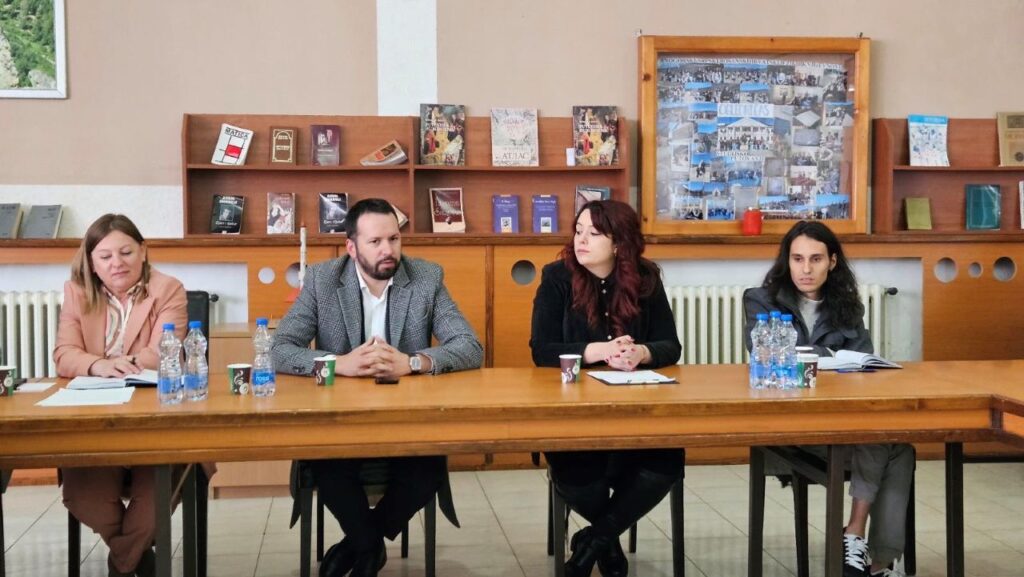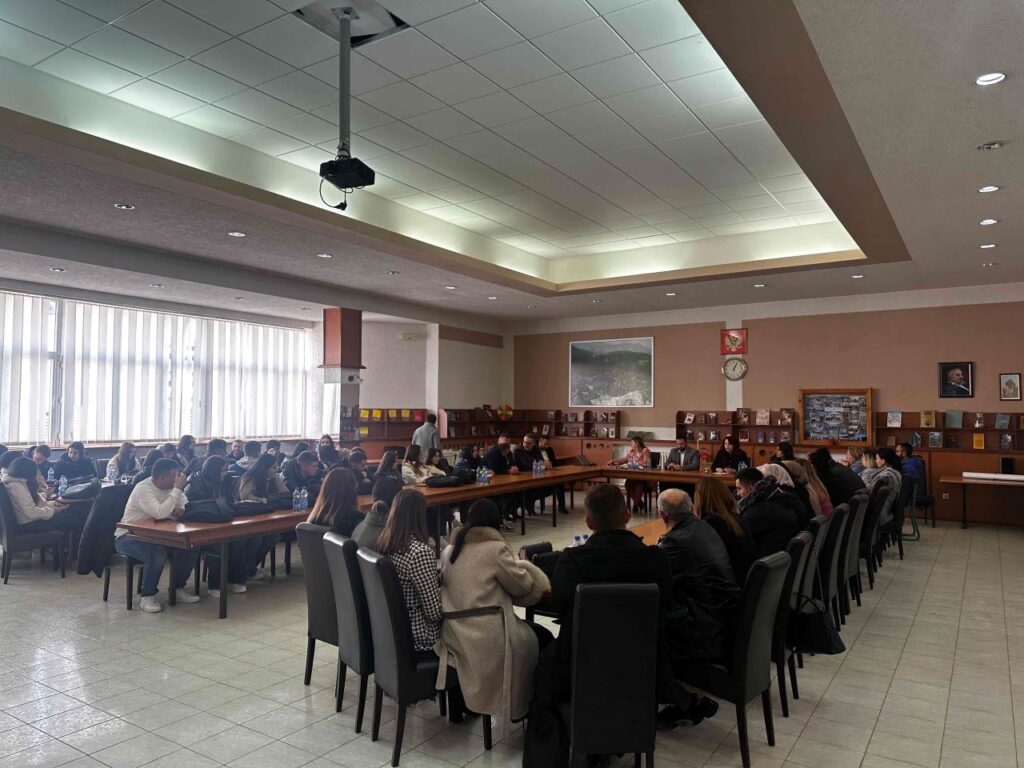“Despite the challenges, it is possible to preserve a harmonious multiethnic and multicultural society, but this requires learning about diversity and coexistence grounded in solidarity,” was the message from a public debate on intercultural development in various municipalities in Montenegro. The event was organized today by the Centre for Civic Education (CCE) at the “Bećo Bašić” Secondary School in Plav, with support from the Ministry of Human and Minority Rights, as part of the “Harmony in Diversity” project.
“Plav is an example of how interreligious, intercultural, and interethnic communities can function harmoniously and effectively. I believe we have found the best way to balance this, despite the challenges we have faced,” stated Nihad Canović, the President of the Municipality of Plav, in his opening remarks at the debate on multiculturalism in Plav. He highlighted some historically challenging situations as well as contemporary daily issues. “However, the citizens of Plav, of all faiths and nationalities, have always found common ground and demonstrated to the rest of Montenegro how to coexist, even with disproportions in the national structure,” he said.
Snežana Bojović, the principal of “Bećo Bašić” Secondary School, underscored the importance of respecting diversity, a principle deeply rooted in both Plav and Gusinje. “It is our duty to preserve and continue on this path. The only signpost we need is the one given by Marko Miljanov, through his examples of humanity and heroism,” she noted.
Reflecting on the education system, she assessed that there is room for further affirmation of these topics. “Having been a teacher until recently, I can confidently say that there is no curriculum topic that cannot incorporate or address these themes, and I know my esteemed colleagues are doing this. The Ministry of Education has always been supportive of such projects, and our school often organizes workshops with the local government to promote learning about differences. The more we understand diversity, the more open and connected we will be as a society,” Bojović concluded.
“Today, there are ethnic trenches being dug deeper, trenches that were previously unimaginable. Long ago, in Yugoslavia, before the bloody wars, during Tito’s era, the ideals of brotherhood and unity were nurtured. We have now replaced that with multiculturalism, but the message remains the same. However, I fear we are not in a process of social integration but one of segregation and marginalization. Different groups coexist in some way, but not based on principles of mutual assistance, solidarity, and celebrating similarities and differences. Instead, political oppression instills fear and intergroup anxiety, deepening ethnic divides,” said activist Dušan Pajović.
“It is necessary for young people to self-organize in building bridges of multiculturalism in our society and to somehow resist the negative influence of the government and the church. This can happen if they step outside the framework of current existence and turn to alternative methods of fighting for a better society,” Pajović urged.
Today’s event in Plav, which gathered around 50 participants, is the fourth in a series, following similar events in Bar, Bijelo Polje, and Podgorica. Two more are planned—in Nikšić and Herceg Novi. The aim of this series is to strengthen dialogue and the exchange of perspectives among institutions, civil society, the media, and citizens to identify key challenges and needs in fostering interculturalism in local communities.
Nikola Đurašević, Program Associate


